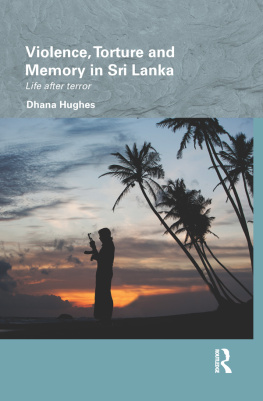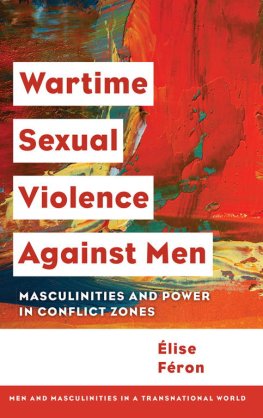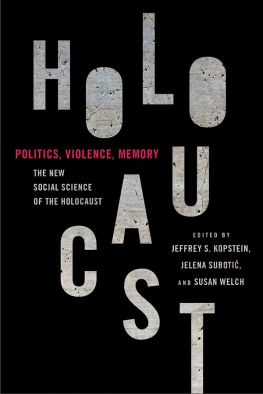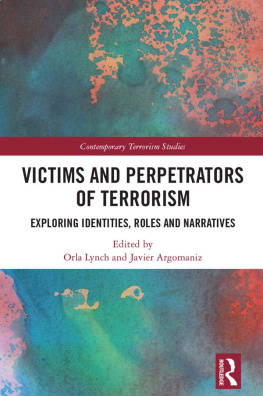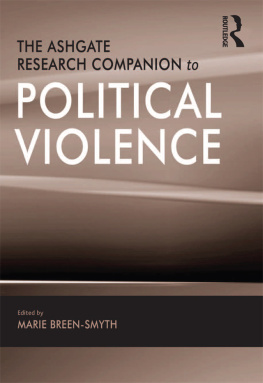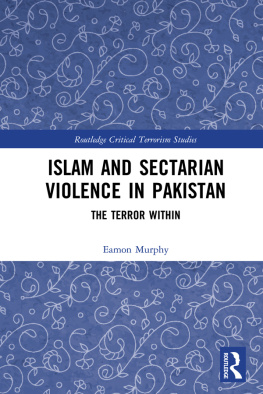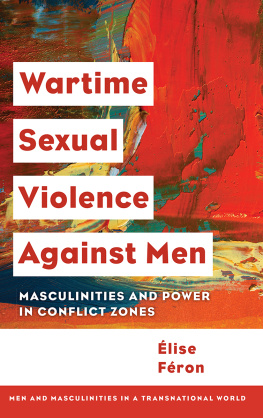Violence, Torture and Memory in Sri Lanka
Drawing on original ethnographic field research conducted primarily with former guerrilla insurgents in southern, western and central Sri Lanka, this book analyses the memories and narratives of people who have perpetrated political violence. It explores how violence is negotiated and lived with in the aftermath, and its implications for the self and social relationships from the perspectives of those who have inflicted it.
The book sheds ethnographic light on a largely overlooked and little-understood conflict that took place within the majority Sinhala community in the late 1980s, known locally as the Terror (Bheeshanaya). It illuminates the ways in which the ethical charge carried by violence seeps into the fabric of life in the aftermath, and argues that for those who have perpetrated violence, the mediation of its memory is ethically tendentious and steeped in the moral, carrying important implications for notions of the self and for the negotiation of sociality in the present.
Providing an important understanding of the motivations, meanings and consequences of violence, the book is of interest to students and scholars of South Asia, Anthropology, Sociology, Political Science, Trauma Studies and War Studies.
Dhana Hughes is an anthropologist at the University of Oxford, UK.
Routledge/Edinburgh South Asian Studies Series
Series Editor: Crispin Bates and the Editorial Committee of the Centre for South Asian Studies, Edinburgh University, UK.

The Routledge/Edinburgh South Asian Studies Series is published in association with the Centre for South Asian Studies, Edinburgh University one of the leading centres for South Asian Studies in the UK with a strong interdisciplinary focus. This series presents research monographs and high-quality edited volumes as well as textbooks on topics concerning the Indian subcontinent from the modern period to contemporary times. It aims to advance understanding of the key issues in the study of South Asia, and contributions include works by experts in the social sciences and the humanities. In accordance with the academic traditions of Edinburgh, we particularly welcome submissions that emphasise the social in South Asian history, politics, sociology and anthropology, based upon thick description of empirical reality, generalised to provide original and broadly applicable conclusions.
The series welcomes new submissions from young researchers as well as established scholars working on South Asia, from any disciplinary perspective.
Gender and Sexuality in India
Selling sex in Chennai
Salla Sariola
Savagery and Colonialism in the Indian Ocean
Power, pleasure and the Andaman Islanders
Satadru Sen
Sovereignty and Social Reform in India
British colonialism and the campaign against Sati, 18301860
Andrea Major
Empire, Nationalism and the Postcolonial World
Rabindranath Tagores writings on history, politics and society
Michael Collins
The Guru in South Asia
New interdisciplinary perspectives
Jacob Copeman and Aya Ikeman
Princely India Re-imagined
A historical anthropology of Mysore
Aya Ikegame
Empire, Industry and Class
The imperial nexus of Jute, 18401940
Anthony Cox
Violence, Torture and Memory in Sri Lanka
Life after terror
Dhana Hughes
First published 2013
by Routledge
2 Park Square, Milton Park, Abingdon, Oxon OX14 4RN
Simultaneously published in the USA and Canada
by Routledge
711 Third Avenue, New York, NY 10017
Routledge is an imprint of the Taylor & Francis Group, an informa business
2013 Dhana Hughes
The right of Dhana Hughes to be identified as author of this work has been asserted by him/her in accordance with sections 77 and 78 of the Copyright, Designs and Patents Act 1988.
All rights reserved. No part of this book may be reprinted or reproduced or utilised in any form or by any electronic, mechanical, or other means, now known or hereafter invented, including photocopying and recording, or in any information storage or retrieval system, without permission in writing from the publishers.
Trademark notice: Product or corporate names may be trademarks or registered trademarks, and are used only for identification and explanation without intent to infringe.
British Library Cataloguing in Publication Data
A catalogue record for this book is available from the British Library
Library of Congress Cataloging in Publication Data
Hughes, Dhana, author.
Violence, torture, and memory in Sri Lanka : life after terror / Dhana Hughes
p. cm. (Routledge/Edinburgh South Asian studies series)
Includes bibliographical references and index.
1. Political violenceSri LankaCase studies. 2. Guerrilla warfareSri LankaCase studies. 3. TerrorismSocial aspectsSri LankaCase studies. 4. Janata Vimukti PeramunaHistory. I. Title.
HN670.8.Z9V54 2013
355.02'18095493dc23
2012049413
ISBN: 978-0-415-53210-5 (hbk)
ISBN: 978-0-203-77146-4 (ebk)
Typeset in Times New Roman
by Taylor & Francis Books
Contents
Jonathan Spencer
Dhana Hughes has written an important book which, above all, should serve as a reminder of things too easily forgotten and lessons still unlearned from events that happened more than 20 years ago in Sri Lanka. Many of these events were profoundly disturbing, and their subsequent erasure from public memory is also disturbing in its own way. This book, at once properly modest in its claims yet immensely powerful in the stories it tells, will make an important contribution to the slow process of understanding the causes and consequences of political violence in post-Independence Sri Lanka.
The immediate subject of this book is not the civil war between the Government of Sri Lanka and the Liberation Tigers of Tamil Eelam (LTTE), which started with the pogroms against Tamils living in Colombo and other southern cities in 1983, and ended with the final destruction of the Tiger leadership on a shell-scarred beach in the north in 2009. The events that took place between 1987 and 1990 in the southern parts of the island, and which form the subject matter of this book, involved waves of terror and counter-terror within the islands dominant Sinhala community. Young people aligned with a leftist-nationalist party called the Janatha Vimukthi Peramuna (JVP) launched an insurrection against the increasingly authoritarian government of President J.R. Jayewardene. The government responded with its own campaign of counter-terror. Unlike the war against the LTTE, those fighting on both sides often shared an intimate knowledge of their enemies neighbours, schoolmates, sometimes even relatives but this closeness did nothing to ameliorate the bitterness of the conflict. On the contrary, the history of the JVP insurrection is a history of terrifying escalation, as the two sides traded threats and atrocities. Finally, the government, which at one point had tottered on the brink of collapse, recovered itself and crushed the JVP and its leadership in a few months of intense brutality in the second half of 1989.
Although the JVP insurrection does not fit easily into the bipolar logic of the 30-year civil war, we should nevertheless see it as very much part of the same history. First, the immediate cause of the insurrection was the governments agreement to Indian plans for a ceasefire and a political settlement with the Tamil rebels, plans that involved the arrival of Indian troops to police the unconvincing and short-lived peace. Second, the participants in the insurrection were strikingly similar to the participants in the Tamil uprising young people, with a leadership from the ranks of the better-educated youth, and foot soldiers mostly recruited from poorer and lower-caste young people. Third, the tactics and personnel used to crush the JVP in the late 1980s were transferred to Tamil areas as the Indians withdrew and the war against the LTTE restarted in the early 1990s. The bigger story, which includes both the JVP insurrection and the civil war with the LTTE, also involves a close but unstable link between populist democracy and authoritarian rule. Sri Lanka has had regular, and relatively peaceful, elections throughout the decades of internal turmoil. Sometimes elections have initiated a change of government, but more often incumbent governments have used patronage and political manoeuvring to block off potential opposition. The more adept a government is at blocking expressions of opposition and discontent, the more toxic the long-term consequences for the polity as a whole. The bigger story also involves the steady, and for now apparently irreversible, growth of the military-security establishment as a factor in the countrys internal political arrangements. The JVP insurrection and its suppression is a central part of that bigger story, and as recent events have shown repeatedly, the questions it raises remain as relevant as ever for Sri Lankas future.

